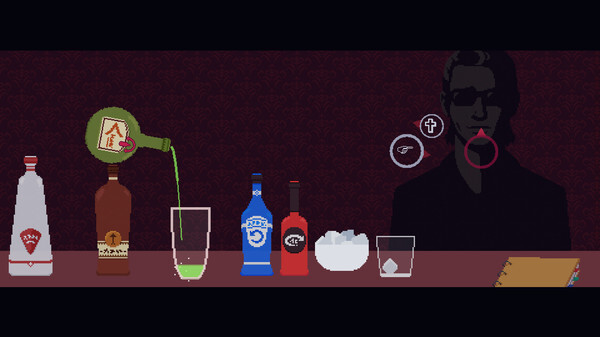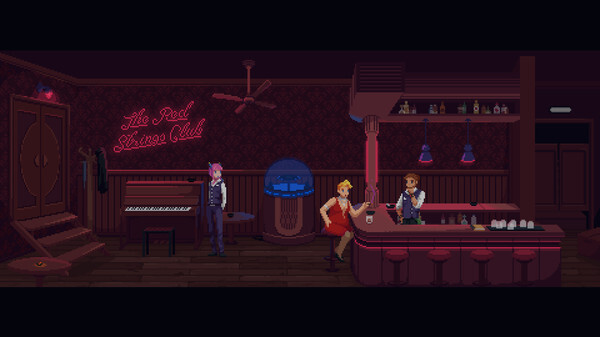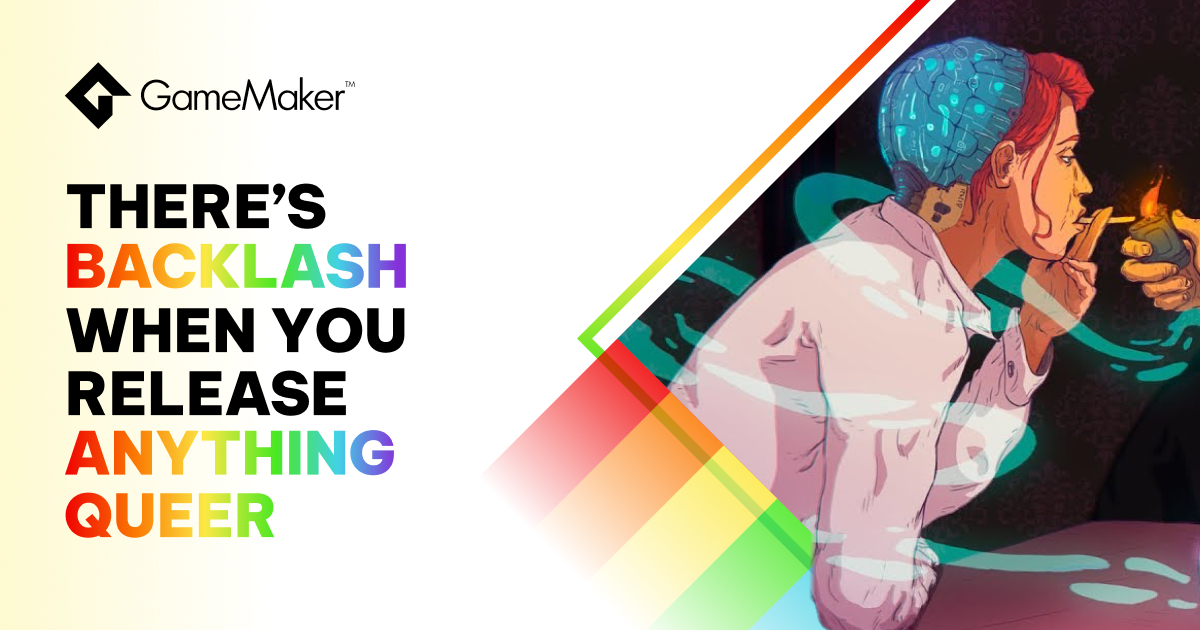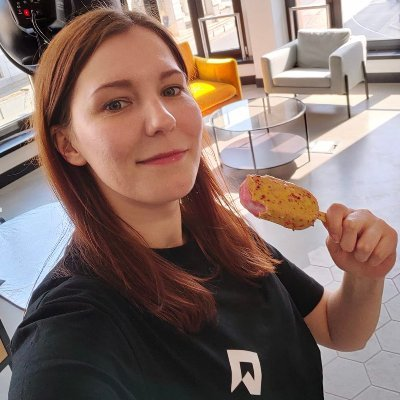Deconstructeam, the studio behind The Red Strings Club, is composed of three members: Writer, designer and programmer Jordi de Paco, Marina González, artist and animator; and Paula Ruiz the sound designer.
The three of them share how a crisis inspired creativity, how the mix of bartending, pottery and phone calls became a recipe for success, and what the current video game scene lacks!
What is Deconstructeam all about?
Deconstructeam is built on a lot of experimentation and continuous exploration of weird and unusual concepts for video games, like the art of flower arrangement, pottery, or something as simple as the experience of browsing a bookshelf.
What games have you worked on?
We have three commercial releases: Gods Will Be Watching, The Red Strings Club, and Essays on Empathy. But we've made over 30 free games.
Right now we are working on The Cosmic Wheel Sisterhood, a Tarot deck-building narrative experience about Witches in outer space.
How did your adventure with game development start?
Jordi started making tiny browser games and joining game jams and shortly Marina joined to make the games prettier.
Eventually, Paula discovered us on a gamedev forum. She was shocked that all of our games were completely silent and offered to help us with fantastic results. The chemistry was immediate, and here we are today, 10 years later.

Bartending in The Red Strings Club
What inspired the creation of Red Strings Club?
Deconstructeam is a usual suspect in game jams - we love to experiment with ideas doing short prototypes in less than two or three days. After releasing our first game, Gods Will Be Watching, in 2014, we spent a couple of years struggling to find the "next big thing" to work on and had canceled numerous projects. By the end of 2016, we had still nothing and found ourselves in a bit of a desperate position.
During a crisis meeting a joke came to our rescue: "Why don't we just put together the best prototypes we've done over these years?", "And what are we going to mix? Bartending, pottery, and phone calls?", "Imagine a game with all that, how would you make sense of it?"
And down that rabbit hole, we found ourselves engaged in what ended up becoming The Red Strings Club.
How does your game approach the themes of queerness?
The cast of Red Strings Club is diverse, and the main protagonists are a gay bartender and a bisexual hacker in a robust romantic relationship.
It was an important point for us to make a game that featured queer characters but the plot didn't revolve around that. It’s another natural element of the narrative, which I believe we're still lacking importantly in the videogame scene.
Is game development a friendly space to the LGBT+ community?
It's friendlier than the gaming community, especially in the indie dev scene. However, game development in the big industry is still a male dominated environment, and even if we're becoming more and more conscious by the years, it's still an industry which is harder to navigate for many minorities.
Are there any unique challenges that LGBT+ developers and their games face?
Well, there's always some backlash when you release anything with a hint of queerness. Just some non-binary pronouns can get you a good deal of negative user reviews. But as developers, as the human making the games, just openly existing on the internet often gets you some nasty replies and you can get sick of blocking disrespectful people.
In turn, that makes you paranoid when you attend physical events, and you can't help but keep wondering who you can allow yourself to relax with or who you may be making uncomfortable.

A relaxing evening in the Club
Why did you choose to work with GameMaker?
We tried many engines when we started making games and, simply put, Game Maker is really easy to use. It allowed us to focus on the creative and reduce to a minimum the technical struggles. After 10 years making games, we're extremely satisfied with it.
Is there anything that frustrates you about GameMaker?
There is, actually. After so many years Game Maker has been improved in many areas, but the audio system remains pretty basic and doesn't give a lot of room for interesting audio design and implementation.
What do you find most challenging about being an indie game developer?
Making a living amidst the massive amount of games released every year. If it was a matter of quality content, we'd be happy about it even! But nowadays we're dealing with a plague of trashy money-grabbing products that saturate every store, gaming the algorithm or even worse: using AI-generated content with untruthful intentions.
Creating low-quality games saturates the market and may mean quick profits as a short-term strategy, but it is not a sustainable or ethical practice in the long run.
Who are your favorite LGBT+ developers and/or games?
Brainwash Gang are really interesting game makers and over half of their team is LGBT+! We also love Signalis, and Unsighted, both games made by queer game developers.


